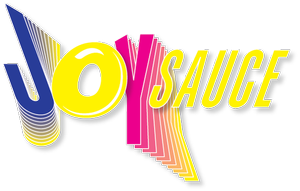Sara Kehaulani Goo's 'Kuleana' Chronicles One Woman's Journey To Reclaim Her Hawaiian-Chinese-Okinawan Heritage And Ancestral Land
Mixed Asian Media - September 12, 2025
By Rohan Zhou-Lee
Powered by JoySauce
Photo credit: Sara Kehaulani Goo/Marvin Joseph
“Kuleana,” meaning responsibility, is a vivid memoir by journalist Sara Keihaulani Goo that details her uphill battle against modern U.S. imperialism and capitalism to save a sliver of her heritage: the land itself. Goo's family received land from the legendary King Kamehameha III under the historic Mahele, a law that bequeathed land to people. Under U.S. occupation, these lands have been slowly taken away and given to foreigners, mostly white men.
Goo's story begins when property sworn to be kept in the family is slapped with a 500% land tax increase, due to foreigners — or haole — buying land and offsetting the cost of living. The extremely wealthy are displacing Native Hawaiians, or Kānaka Maoli.
Such figures include Trump supporter Mark Zuckerberg, who has spent more than $100 million dollars to buy land and has sued local families to take over 1,500 acres, and Oprah Winfrey, who owns 1,000 acres and received some backlash after creating a nonprofit to support the Lahaina community after a devastating fire in 2023.
In an interview with Mixed Asian Media, Goo pointed out how such figures are also controlling the stories being told about Hawaiians.
“The stories that exist about Hawaii are largely written by Hollywood, and they're very Disney-like,” she said. “They're written by a kind of tourist. It's not really an accurate picture.”
Anyone with a multiracial, multiethnic, or multicultural background will find Goo's memoir extremely relatable. Her fight to keep the land parallels her struggle to prove her Hawai’ianness to other Kānaka Maoli, as she also writes about her Chinese and Okinawan heritage.
Some family members accept her. Others reject her. Goo falls between belonging neither here nor there — between capitalist survival standards and the kuleana, or responsibility, to honor the will of her ancestors despite these barriers. She proves that you don't need a seal of approval from others to belong, weaving Hawaiian history and language to educate as she tells her story.
There is a small but growing cannon of Hawaiian literature in the U.S. market. Kānaka Maoli are reclaiming that space long dominated by non-Hawaiian narratives. To my knowledge, Kuleana is one of a kind due to the severe lack of — and growing demand for — Hawaiian memoirs.
It's even more special because of Goo’s vulnerability in discussing the challenges of mixed-race heritage and surviving in a capitalist society. She understands and enforces the responsibility we journalists undertake when our voices aren’t controlled: to tell the story and reveal a truth for change.
“[Hawai’i is] the only state that used to be its own independent nation,” said Goo. “Hawai’i deserves its rightful place in history.”
Rohan Zhou-Lee, pronouns They/Siya/祂 (Tā) is a Queer/Non-Binary Black-Asian author, dancer, and organizer in New York City. Zhou-Lee is the founder of the Blasian March, an initiative to build solidarity between Black, Asian and Blasian communities through education and celebration. They have been featured as an organizer on AJ+, CNN, NBC Chicago, WNYC, Gothamist, Hella Pinay, and other news outlets. They have written on Black-Asian solidarity for them. magazine, Prism Reports, Truthout and Mochi Magazine. Their essays have been incorporated into Asian American studies courses at California State University.
JoySauce is a multimedia network dedicated to celebrating the full spectrum of Asian American and Pacific Islander narratives. The site boasts a vibrant library of content around entertainment, lifestyle, food, travel, culture, relationships, art, and education in the form of exciting new streaming shows, movies, standup comedy, provocative podcasts, and a suite of editorial updated daily.



